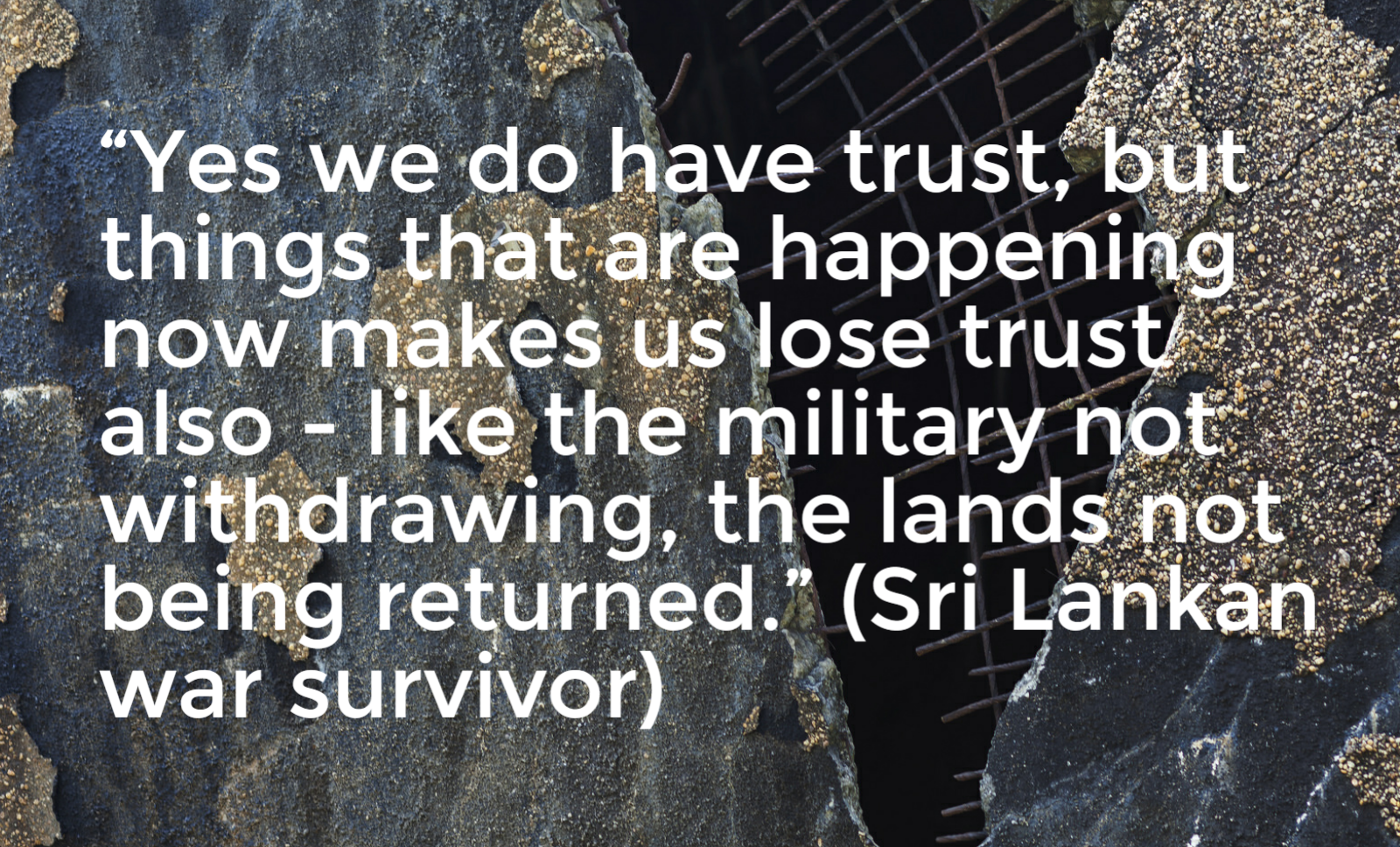The Sri Lanka Campaign has released a score-card on the Sri Lankan government’s progress towards implementing its promises, made at the Human Rights Council in October 2015, to address human rights violations and embark on a process of reconciliation.
Commenting on the evaluation, Richard Gowing, Deputy Campaign Director of the Sri Lanka Campaign for Peace and Justice said:
“The findings of the evaluation raise serious questions about the willingness of the Sri Lankan government to take the bold steps necessary to address the legacy of the war. Of the 25 specific commitments pledged by the government at the Human Rights Council last year, 16 can be classified as ‘not on track’ or as giving cause for concern, compared to only 3 which can be described as ‘on track’. For the 6 remaining commitments it remains too soon to say.
“Whilst acknowledging that many of the measures promised by the Sri Lankan government will require time and patience, we are increasingly concerned that the ambition of the promises made to the Human Rights Council in October 2015 is not being matched by the required level of political will.
“Though the government has shown greater willingness to engage with the international community on human rights issues and to hear the concerns of war survivors through its consultation process, there are worrying signals that it is not doing enough to prepare the ground some of the toughest, yet arguably most important, steps – such as de-militarizing the North, investigating disappearances and prosecuting war crimes.
“The current reconciliation process may be the best chance Sri Lanka has, and may ever have, of dealing with its recent past and laying the foundations for a sustainable peace. The stakes remain very high, not just for war survivors seeking truth and justice, but for all Sri Lankans who have a stake in averting yet another cycle of conflict”.
Following a landmark international investigation, in September 2015 the United Nations released a major report (the ‘OISL’ report) into serious human rights violations in Sri Lanka between 2002 and 2011. The document, available here, was clear in its view that many of those violations would amount to war crimes and crimes against humanity if established in a court of law. It also made a number of recommendations as to how Sri Lanka might begin to address these crimes and start laying the foundations for a sustainable peace.
In response, the Government of Sri Lanka, acting through the UN Human Rights Council, made a series of promises to war survivors and the international community, pledging to address the legacy of the war through a wide-ranging set of measures. These promises were contained in Human Rights Council resolution 30/1, agreed in October 2015.
Below, we have distilled the text of this agreement into 25 specific commitments – commitments which the Sri Lankan government must now live up to if it is to have the trust of war affected communities. As our recent report highlights, it is the very lack of trust that is currently the biggest obstacle to meaningful reconciliation in Sri Lanka.
Next to each of the commitments we have provided a short evaluation of progress to date along with a colour code. As illustrated most starkly by the overview chart, though there has been improvement in several areas, there remains much much more that needs to be done in others.
In designing this project, we aim to shed further light on the often complex and convoluted nature of Sri Lanka’s transitional justice process. But even more importantly, we hope it will better enable individuals to hold the government of Sri Lanka to account for its commitments. So while we continue to update this tool over the coming months and years, you can take action right now by clicking here and asking the Sri Lankan government to #KeepThePromise.





